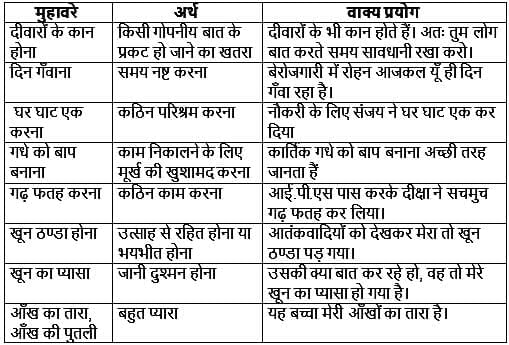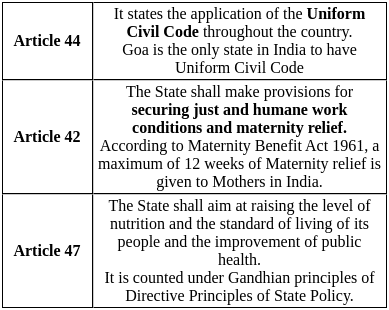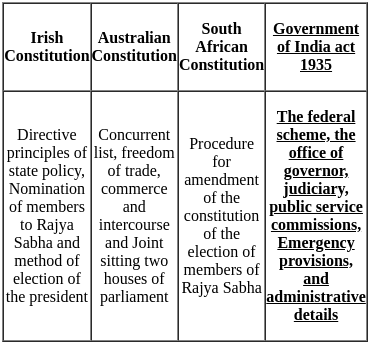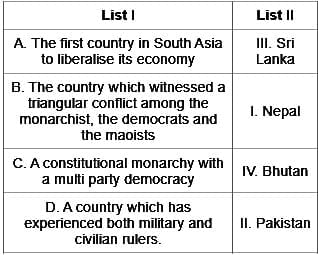MPTET Varg 1 Political Science Mock Test - 2 - MPTET MCQ
30 Questions MCQ Test - MPTET Varg 1 Political Science Mock Test - 2
'उत्तराधिकार में प्राप्त सम्पत्ति' - इन अनेक शब्दों के लिए एक शब्द है-
रिक्त स्थान की पूर्ति कीजिए।
ताजमहल______ का एक अद्भुत नमूना है।
ताजमहल______ का एक अद्भुत नमूना है।
'अपना उल्लू सीधा करना' मुहावरे का अर्थ निम्न विकल्पों में से कौन सा है?
Where is the the Gupta Vishnu Temple located in Jabalpur district?
The Emergency Provisions in the Indian Constitution were taken from which of the following sources?
All States have a uniform three-tier Panchayati Raj structure. Which among the following doesn't belong to Panchayati Raj structure?
Match List I with List II
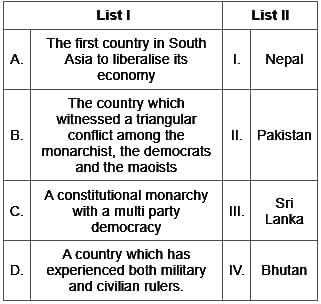
Choose the correct answer from the options given below:
Match List I with List II
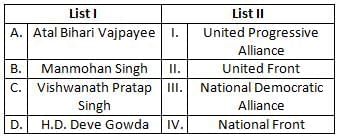
Choose the correct answer from the options given below:
The 'State Election Commissioner' is appointed by:
With reference to the Union Public Service Commission (UPSC), consider the following statements.
1. The UPSC consists of a chairman and other members appointed by the president of India.
2. The Constitution, clearly specify the strength of the Commission.
Which of the statements given above is/are correct?



